Songwut Jullanan
A three-hour drive south of the Thai capital of Bangkok will take you
to the idyllic coastal city of Prachuab Khiri Khan (PKK), famous for
its pristine beaches, crystal clear waters, and amazing seafood. Its
community-based tourism is quite notable.
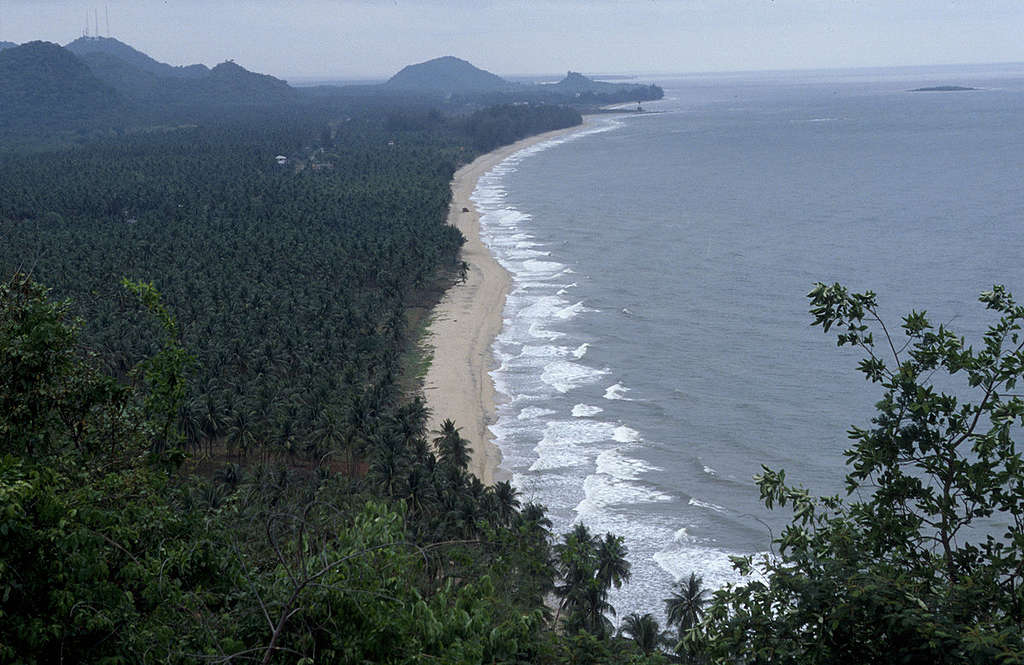
Despite growing industrialisation and urbanisation- with mass production factories spreading across the country- a majority of people in PKK still make a living through fishing, and coconut and pineapple farming. Many operate family-run tourism businesses.
But PKK’s peaceful landscape could have been so different had it not been for the local community’s efforts to prevent the construction of three coal-fired power plants at their doorstep.
The rise of people power
It all started in 1995 when the Thai government announced plans to build coal power plants throughout Prachuab Kiri Khan: 700MWs at Bo Nok, 1,400MWs at Ban Krut, and 2,000MWs at Tab Sakae sub-district. The projects had been questioned by local communities especially on the lack of public participation and transparency especially on the coal plants’ Environmental Impact Assessment (EIA).
“If the coal-fired power plant was good and really was naturally friendly, why would no other places accept it?,” asked Sureerat Taechutrakul, one of the prominent leaders working with civil society groups resisting the project.
“I don’t know if the plant will have a negative impact on our
pineapple and coconut plantations. We can’t prove it, so we have the
right to fear,” another local said.
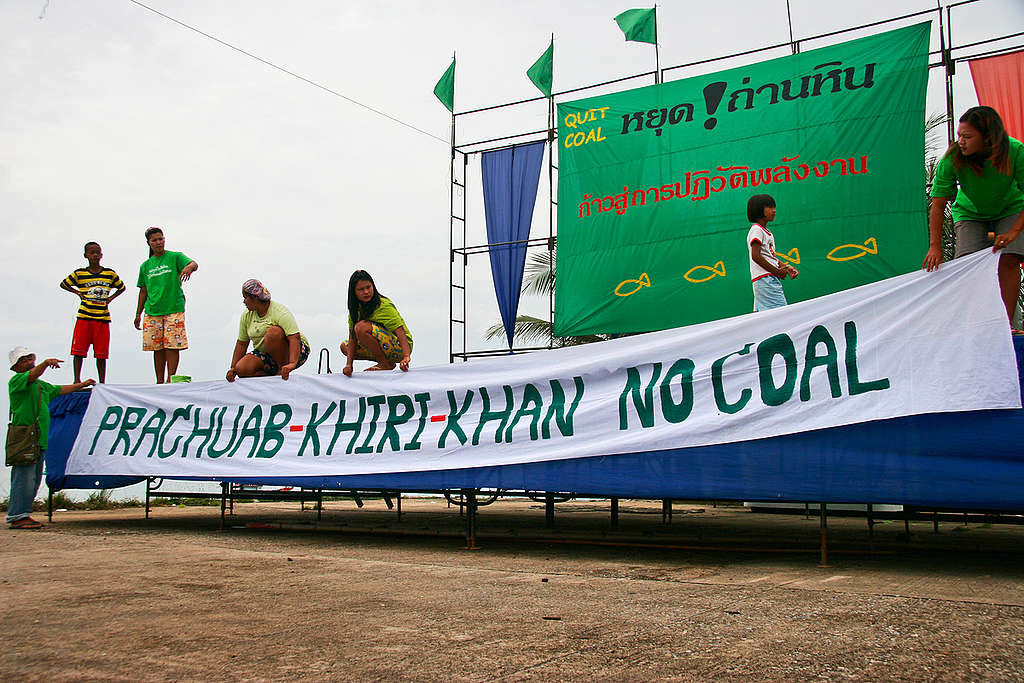
People had every reason to doubt, especially after they found wrongful information in the EIA, which they believed was intentional. The EIA report withheld information about coral reefs and Bryde’s whales living in the area. Furthermore, it was found that the land for the power plant was acquired illegally. This had led to overall mistrust for the EIA, as well as raised concerns on the environmental impacts if the plant had been constructed.
From merchants to farmers, fishers to chefs, people from all walks of life continued to stand together and maintained their opposition throughout the years to protect their rights and their homeland. Every single non-violent tactic had been used. They handed over demand letters to the city hall, blocked roads, intervened with the EIA study team, occupied the site of coal plants, lobbied local governments, and even attended stakeholder meetings of the company.
“The coal-powered plant is a big-budget project, so during the protest, we only had a few allies. Greenpeace Thailand was one of them,” Sureerat said.
In 2000, the Greenpeace Rainbow Warrior sailed to Thailand for the
first time for the “Toxics-Free Asia” tour. The vessel stopped by Baan
Krut and raised its sails with flags to show support for the local
movements in PKK. This marked an important step in Greenpeace Thailand’s
renewable energy campaign, working alongside people who clearly want a
clean-energy future, even going against government’s wishes.
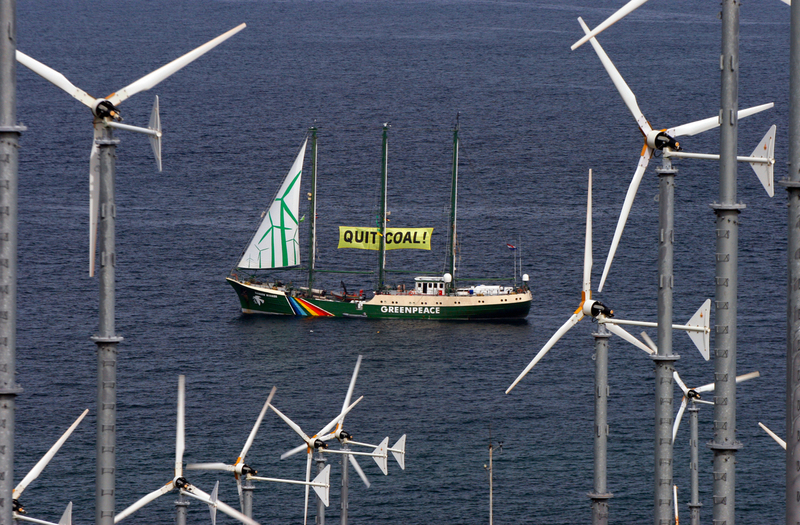
© Vinai Dithajohn/ Greenpeace
“I remembered the prolonged activity whereby local groups put pressure on the government’s decision by counting down to the day of finalising whether or not these projects should go ahead,” Tara Buakamsri, Country Director of Greenpeace Thailand, recalled.
“They put up big billboards on the highway indicating how many days left and announced for blood donation to be stocked in the local hospital to symbolically indicate that they would fight until death. It was a scary tactic, right?”
Local communities made noise and put the issue on the national agenda by communicating about the project’s lack of transparency. They put up signs along the street sides, from Bangkok all the way to the south to PKK, with messages like “When the coal is clean, dogs are able to fly”, or “The beach is a place for sea turtles to lay eggs, not for power plants.”
Their relentless campaigning worked. PKK representatives managed to open up a participatory process in making decisions about the country’s energy future. The public viewed them, not as “angry people” who kept going protest after protest, but as a community inspired- giving the nation hope.
The PKK community’s first victory came in 2002 when the government announced a postponement of the project for another 2-5 years. This was followed by an order to move the power plant to another site.
This initial success, however, came at a heavy price.
Kill one and thousands more are born
In 2004, the government announced to call off the coal-fired power plant projects. The local communities then moved to further address the then controversial issue of land grab.
On the 21st of June 2004, on the way back from Bangkok after testifying in a land grab case, local leader Charoen Wataksorn was assassinated by unknown assailants. Charoen was known for voicing concerns over the imminent environmental destruction of the proposed coal power plant.
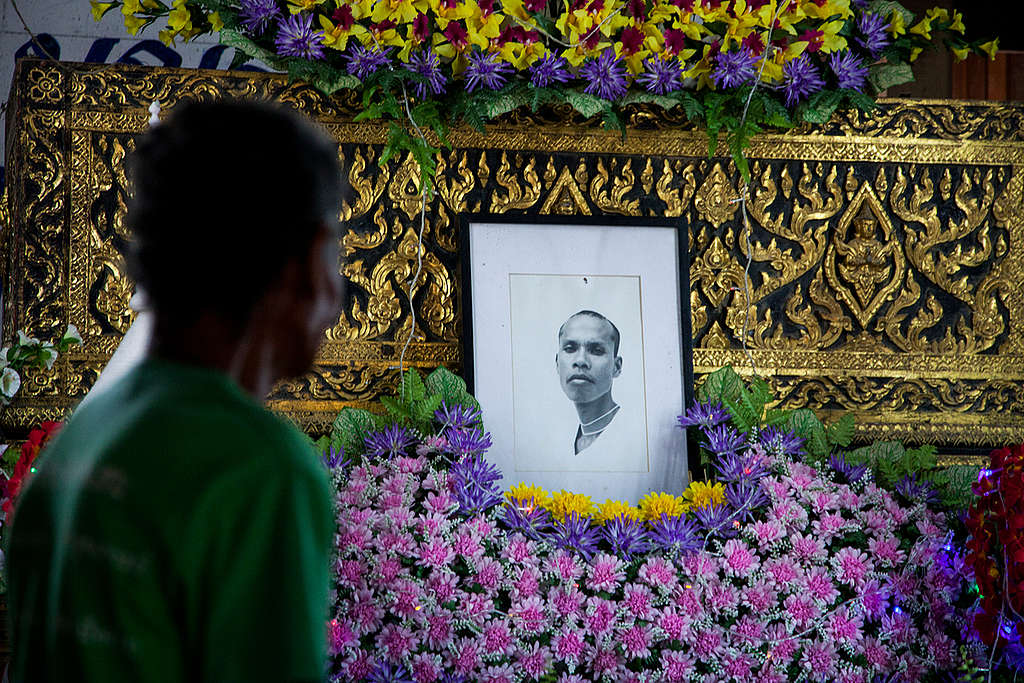
© Biel Calderon / Greenpeace
Born and raised in Prachuab Khiri Khan, Charoen had been fighting alongside the local people from day one. What drove him was the desire to protect their community and his homeland.
“When the civil groups protested or went to (protest in) Bangkok, we had up to 20 cars packed with people. Charoen would be leading up front,” Jintana Kaewkow said in an interview with BBC Thailand.
Along with Charoen, Jintana was one of the prominent leaders resisting the power plants, for which she was jailed for four months.
“He was a natural leader. He could control a large number of people while protecting them. At the time, he was the best in the country,” she added.
After the initial postponement of the project in 2002, the power plant project was brought up again in 2006, with plans to increase the generation capacity from 2,000 MWs to 4,000 MWs.
The mastermind thought that by getting rid of the PKK leader, they would be able to proceed with the coal plant project. They were wrong.
Charoen’s death further intensified the protests. The coal-fired power plant project in Prachuab Khiri Khan was eventually abandoned for good in 2004. Two decades later, Charoen remains in the hearts of the local people. His legacy lives on.
“His death is not in vain,” Korn-uma Pongnoi, Charoen’s wife, said. “As the Thai saying goes, ‘kill one, and thousands more are born’. No matter how powerful the people in power are, if the local communities stand together, we can win any fight.”
Achieving the impossible
The victory in Prachuab Khiri Khan marked a first for Thailand- of local communities overcoming the odds and winning a major victory against the government and the mighty coal industry. Thanks to people power, PKK is thriving and coal-free.
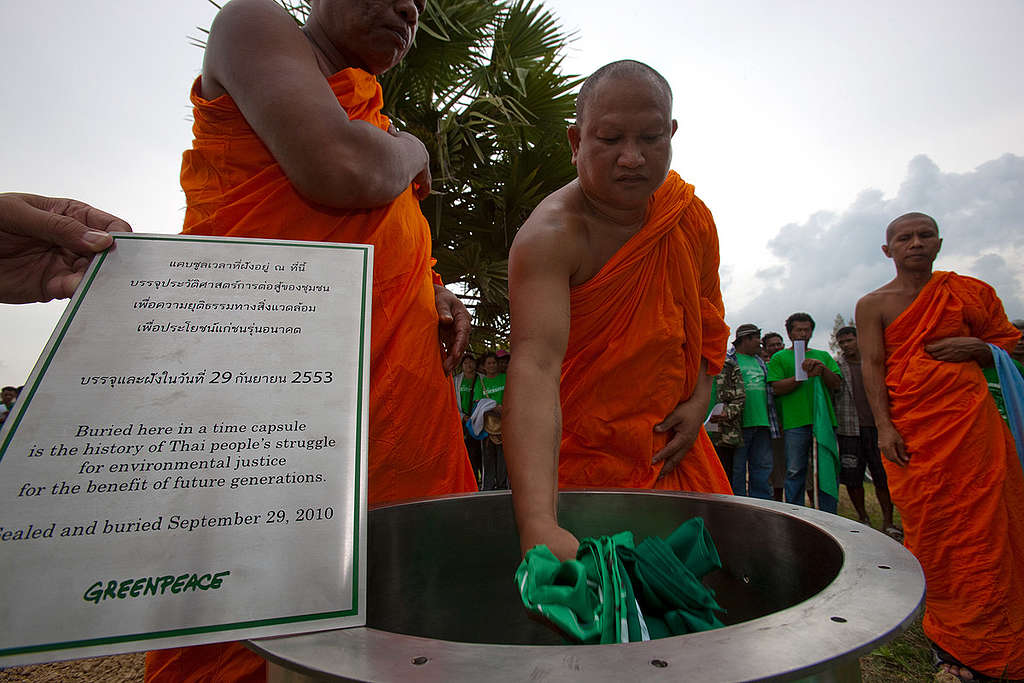
© Athit Perawongmetha / Greenpeace
The resistance in PKK had been imprinted among Greenpeace Thailand activists who have fought hand in hand with local groups.
Confronting the coal industry has never been easy, and it will never be. But the people of Prachuab Khiri Khan have proven that if everyone came together, overcame their fears and resisted as one, they can persevere and achieve the impossible.
“To keep our livelihood for our future generation, we have to go beyond fear,” Korn-uma Pongnoi said.
Songwut Jullanan is a Media Campaigner for Greenpeace Thailand.

No comments:
Post a Comment
Note: Only a member of this blog may post a comment.